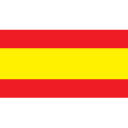SIEL comes to Chile
SIEL continues its overseas expansion process, announcing the construction of the photovoltaic plant in Diego De Almagro, Chile. All-Italian technology for one of the most interesting sectors in Latin America – renewable energy. The project, as already demonstrated by a long series of large worldwide facilities fitted with SIEL inverters, is further proof of the company’s excellent reliability. With its comprehensive, accredited experience in this sector, it can operate in both arid desert zones and in very cold climates like Romania and Serbia. The plant has an installed capacity of 36 MW of PV modules and is located in the Atacama desert, about 900 m above sea level. The elevated radiation combined with mild temperatures mean the modules can supply power with excellent performance and not suffer any de-rating caused by high temperatures. This climate is favourable for the SIEL Soleil series inverters, which can handle high capacity for long periods of time without any adverse effects. The solar farm is divided into two separate subfields using 186,240 thin-film modules on fixed support structures and, in the second subfield, 40,280 polycrystalline silicon modules in installed on solar tracking structures. The plant has been constructed in a redeveloped area of about 112 hectares – the same space occupied by about 160 soccer fields. The plant is equipped with 23 variable capacity enclosures of up to 2MW fitted with the Soleil and Soleil Monolithic inverter of 660kW power each. The unusual size of the PV field sees the use of parallel boxes with control logic to monitor the plant’s production and performance, also through remote control using the sophisticated SCADA monitoring system. The inverters have been operating now for a few months and are converting high energy values and injecting the energy into the grid, showing its potential for a high performance ratio at the end of the monitoring period. “We are pleased with our work in Chile”, says Enrico Pensini, Chairman of SIEL. “The extreme situations in the Chilean desert demonstrate once more the effectiveness, adaptability and reliability of the SIEL products”.

